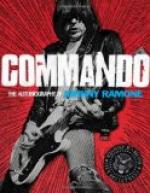We accidentally met our former Commandant, Boshoff, who told us that he was on his way with ten men to join General de la Rey, who had gone in the direction of Rustenburg to cut the enemy’s line of communication between Mafeking and Pretoria, and we very willingly joined him, after a delightful rest of ten days.
The commando of Commandant Boshoff consisted of nine burghers with an ambulance waggon—that was used for the commissariat and for our bedding—a French doctor, two Kaffirs and two tents. It seemed as if we were going for a picnic. But it was necessary that we should be well provided with all sorts of things, as our journey would be through the Boschland, where fever and horse-sickness play havoc with man and horse in summer. In winter it is endurable for a few months only, so the country is very scarcely populated and almost uncultivated, and in winter the Boers trek there with their cattle from the bare, chill Hoogeveld. I had always longed to see that part of the Transvaal.
V
TREK FROM MIDDELBURG TO RUSTENBURG—BATTLE OF SELIKATSNEK
Some hours north of Middelburg one suddenly leaves the high plateau of the Boschveld for a difficult road that curves steadily downwards between two high mountains until it reaches a wide, thickly-wooded valley. In the kloof (mountain-pass) a swiftly-flowing river cuts the road that goes along its banks, in several places, before it loses itself in the Olifants River. There the song of many birds, not to be found on the Hoogeveld, can be heard, and there it was delightfully warm, in comparison with the chilly air of the Hoogeveld. Of an evening we made large fires, as there was plenty of dry wood. We sat round the fire, chatting or listening to the comic songs which one of our comrades sang. It was a happy time—away from khaki, far beyond reach of the roar of cannon—a time of rest in preparation for the evil days that awaited us.
Everywhere we saw flocks of sheep and herds of cattle grazing among the bushes—always a sign that we should find a waggon or two with tents close to them, under the nearest trees. Sometimes, near a drift or a good place to uitspan, quite a small lager had been formed of the trek Boers, or, rather, of their wives, for the husbands and sons of many had gone to the war. The Boers who fled with their cattle in that way we called ‘Bush-lancers.’ We came up with De la Rey’s lager near the Elands River, and later on made the acquaintance of Captain Kirsten’s scouts, to whom we offered our services. In those days it was very pleasant to belong to the reconnoitring corps. When we went to reconnoitre our horses got plenty of forage on the farms, and as we were few in number and always ahead of the lager, there were always eggs, bread, and milk to be had. We had enough to do, also, as we had to keep a sharp look-out, and we were in constant danger, but not at all afraid of the patrols of khakies, which, being




